Ball Python Teeth How to Keep You & Your Animal Safe
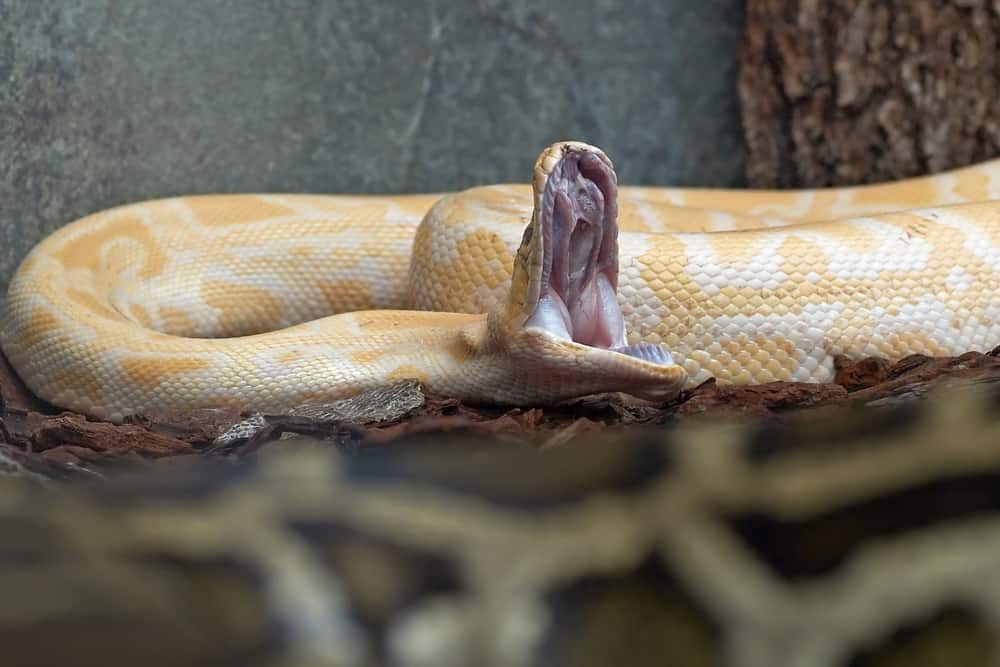
Ball Python Teeth How to Keep You & Your Animal Safe
The first step to do is wait. If it were a defensive ball python bite, the snake would let go right away. If it were a feeding response, he wouldn't let go, and he'll wrap you up. In this case, attempt to run the ball python's head under cool water. That should convince it to release its bite.

"Rough Scaled Python Teeth" by Steve Bullock Redbubble
The number of teeth a ball python has depends on the snake's size. The smallest snakes have 42 teeth, and snakes closer in size to an alligator will have around 200. Ball pythons usually sport 81-104 teeth in their mouths, but some specimens will sport more than 140. The fangs fasten into the prey and cannot move independently.
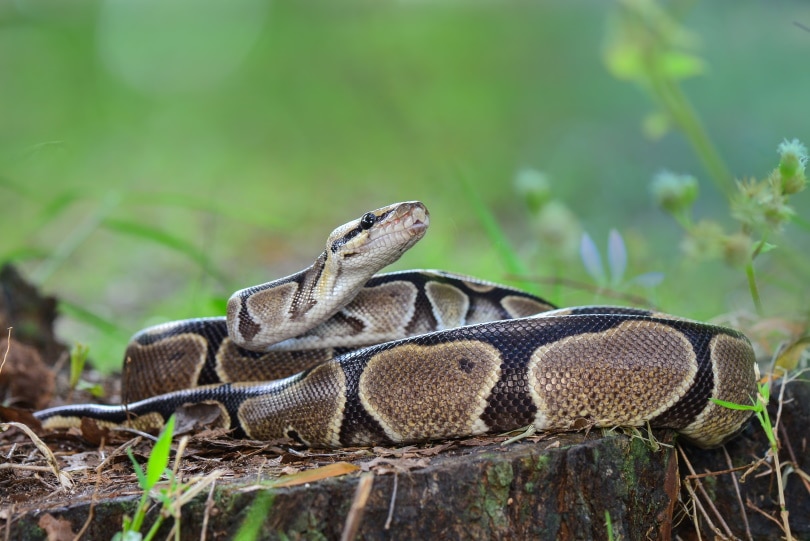
How Many Teeth Does A Ball Python Have? The Answer May Surprise You
If you have a ball python, you may be wondering just how many teeth your snake has.You may be surprised to learn that these snakes have more than 100 teeth in total, with two rows in their lower jaw and four rows in their upper jaw.In this article, we will discuss the ball python in more detail. Keep reading to find out more about these popular snakes.
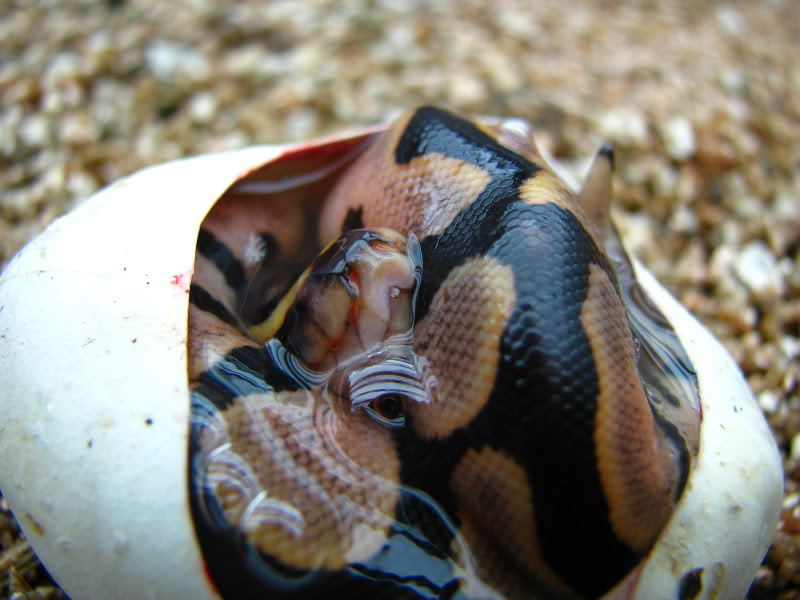
Reptile Facts crispysnakes Egg tooth on a ball python.
Ball pythons are considered medium-sized snakes. The average ball python is 4 to 5 feet long, although they can grow to be 6 feet.. With a hooked shape, their teeth hold prey as they constrict.

How Many Teeth Does A Ball Python Have? (Full Guide)
Ball pythons possess a set of teeth, but they're quite different from the fangs we often imagine. These reptiles have around 25 to 35 teeth distributed in several rows along their upper and lower jaws. Unlike the singular, larger fangs of some venomous snakes, ball python teeth are smaller, yet numerous.
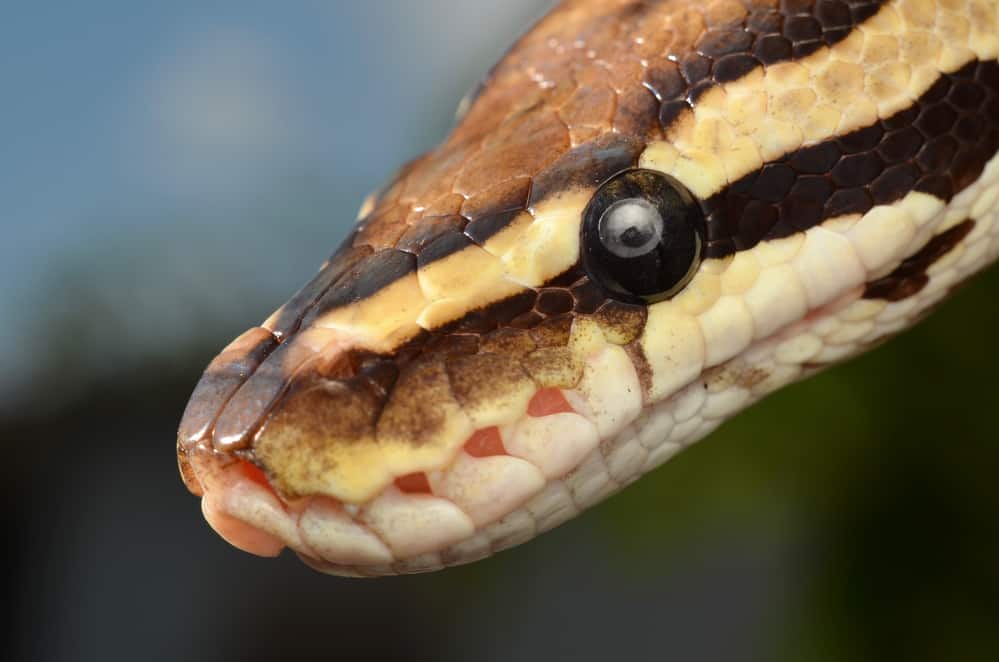
Ball Python Enclosure Perfect Size, DIY, Pictures, & More!
Ball pythons, like other snake species, have quite a few teeth - typically around 25 to 35 teeth in total. These teeth are not evenly distributed but are arranged in several rows along their upper and lower jaws. The teeth in each row are staggered, which helps the snake grasp and hold onto their prey more effectively.

Pythons Teeth Pythons Review
The main function of python teeth is to grasp prey and help swallow it. This means they must be backward-pointing so that they have an excellent grip. Unlike the fangs of venomous snakes, python teeth are solid, and mostly all similar in size. Most species have around 110 teeth. Snake Skull - Odd Animal Specimen.
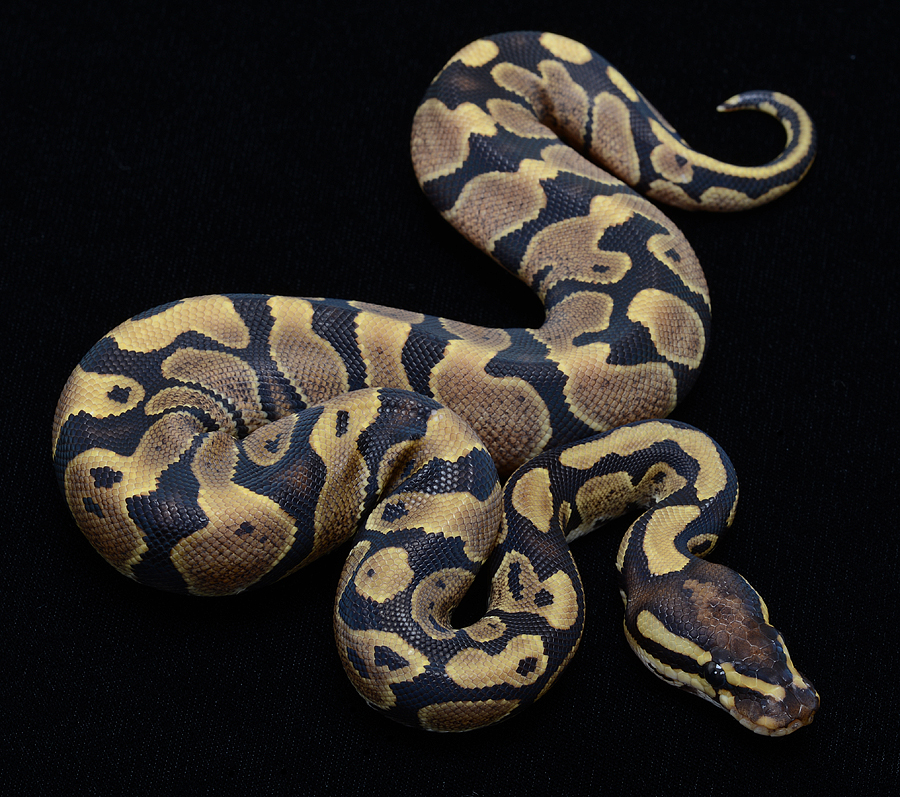
Ball Python Facts and Pictures
Boa constrictors and pythons are "strikers," he notes. Their attacks are lightning-fast—covering some 2.7 meters per second—and tend to come from above their prey. Teeth in their lower jaw impale the prey first and help anchor the snake as it twists to reach up, over, and around the rodent in preparation for squeezing the life out of it.

Wallpaper ID 287108 / snake ball python python regius beauty golden 4k
Its teeth are used to hold and subdue the prey, after which it is engulfed whole. The food then travels down the esophagus into the stomach.. Like all snakes, ball pythons have a highly flexible spine that consists of numerous vertebrae. These vertebrae are connected by ligaments and muscles, allowing the snake to move and bend in various.
Ball Python Teeth bmpmega
Ball pythons do not have fangs. Instead, they possess a set of sharp, curved teeth designed to grasp and hold onto their prey. Fangs are specialized teeth primarily found in venomous snakes, which they use to inject venom into their prey. Ball pythons, on the other hand, are non-venomous constrictors.
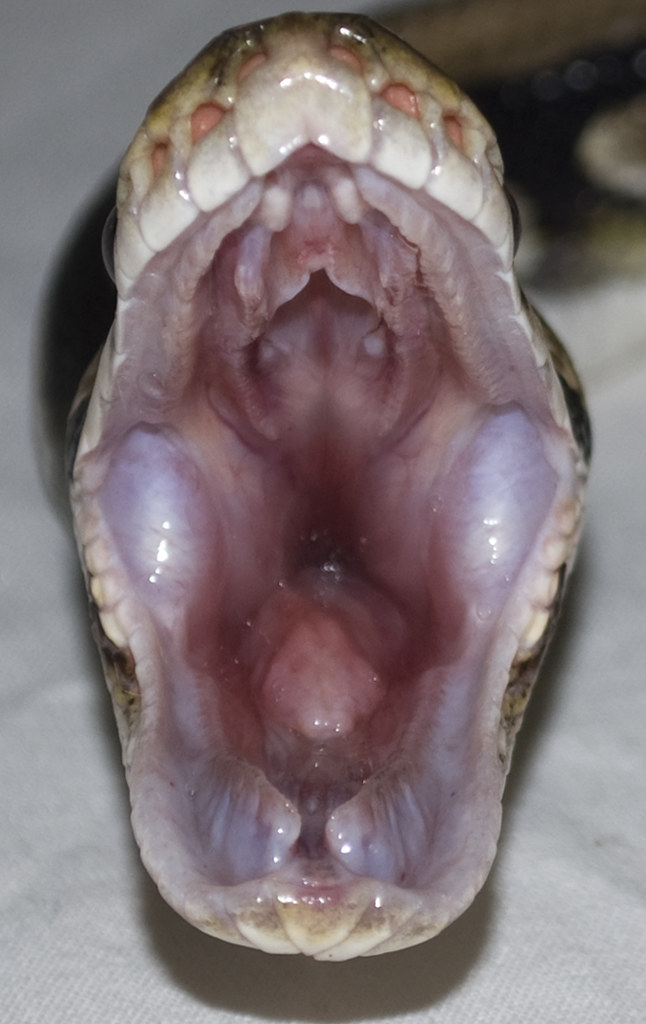
Ball Pythons mouth A clear picture of the inside of a Ball… Flickr
Ball pythons have 30 to 35 teeth, with 14 on the upper jaw and 16 on the lower jaw. The teeth are located in the front of the mouth and are curved inward, which helps them grip their prey. Ball pythons use their teeth to puncture their prey and inject venom. The venom is not harmful to humans, but it can be fatal to small animals.
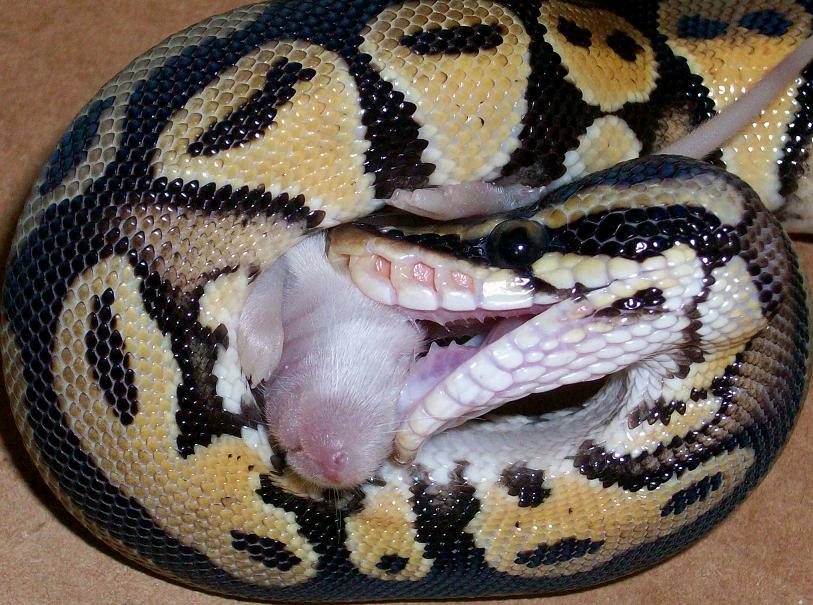
Teeth! Gallery
The teeth of snakes in the case of ball pythons have a function that is nothing like that of human teeth, the teeth of a ball python compared to the size of the snake, it can be said that they are small, are inclined towards the inside of the mouth, with the aim of clinging to the prey when biting.

BallRoyal Python Care Information Arbor View Animal Hospital
Types of Teeth. Ball pythons have two main types of teeth: constrictor teeth and rear fang teeth. Constrictor teeth, located at the front of the mouth, are the primary teeth used for prey capture and holding onto their prey. These teeth are curved backward, allowing the snake to secure its grip on its prey.
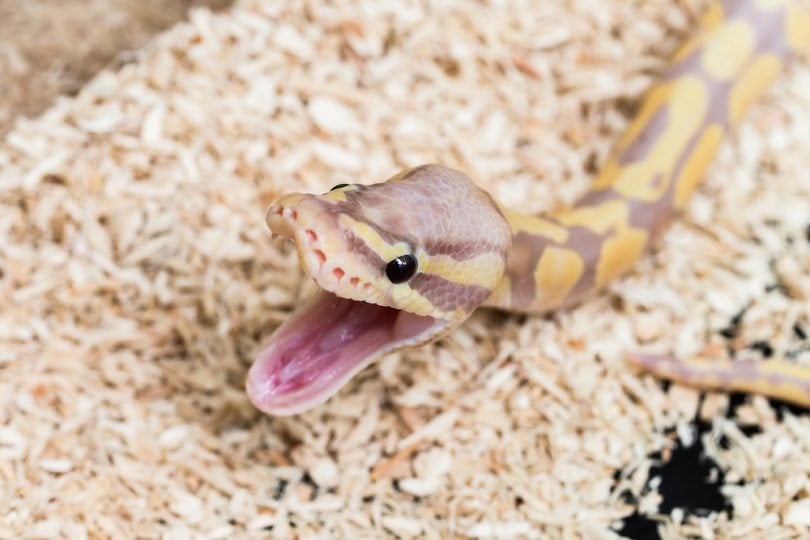
How Many Teeth Does A Ball Python Have? The Answer May Surprise You
These pythons are known for their docile nature, beautiful patterns and colors, and relatively small size compared to other snake species. One interesting aspect of ball pythons is their teeth. Like all snakes, ball pythons have teeth, but how many teeth does a fully grown ball python have? Adult ball pythons typically have between 80 to 100 teeth.

Do Ball Pythons Have Teeth? (Researched) Ball Python Guide
The number of teeth a ball python has tends to fluctuate depending on size and age. Larger and older pythons will have more teeth than younger and smaller ones. The typical adult will have around 30 teeth in four rows on top and two on the bottom. Ball pythons lose their teeth all the time and replace them quickly.
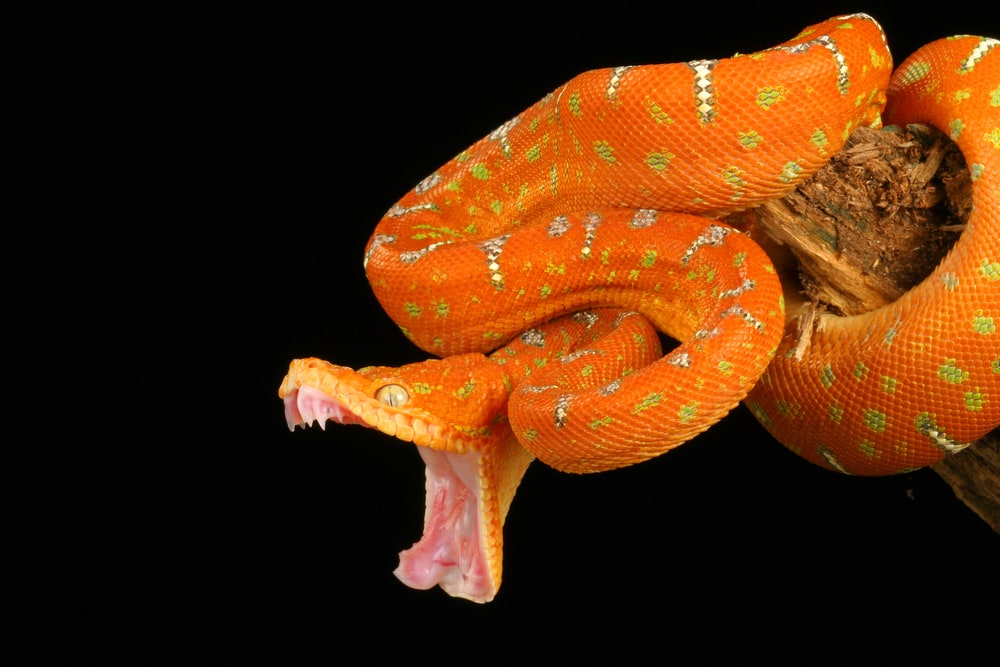
Ball Python Teeth How to Keep You & Your Animal Safe
The ball python will have a fluctuating number of teeth depending on its age and size. You should expect to see fewer teeth inside the mouth of smaller and younger pythons than in the mouth of older and larger ones. Even so, the number will always be somewhere around 30 teeth, divided into two rows at the bottom and four rows at the top.